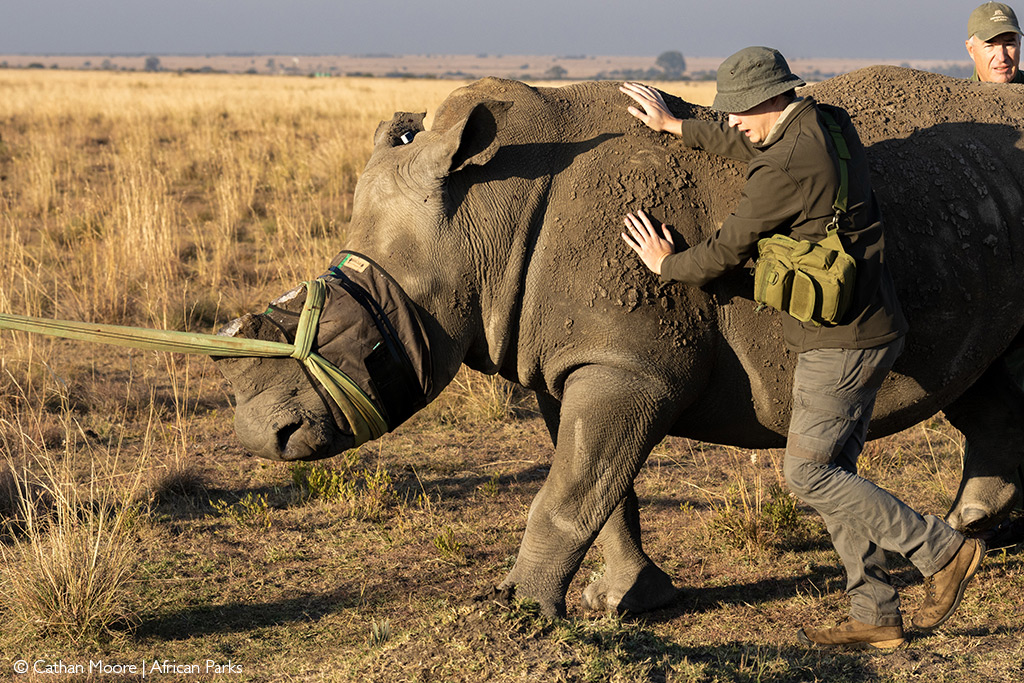
120 southern white rhinos have been successfully translocated to reserves represented by the Greater Kruger Environmental Protection Foundation (GKEPF) in Mpumalanga and Limpopo, South Africa. This translocation is the second move under Rhino Rewild, an African Parks initiative to rewild 2,000 southern white rhinos into secure, protected African areas.
Editorial note about rhino poaching: Information about the presence of rhinos in protected areas comes from within – staff, third-party contractors, pseudo-tourists, relevant government departments, etc. There is no way to prevent poaching syndicates from accessing this information. Successful poaching syndicates find out exactly where in the reserve the target rhino is at any specific time – so that they can get in and out quickly. None of the information in this article is news to the syndicates, and it is also not specific enough for their purposes.
One hundred and twenty southern white rhinos have just been translocated to member reserves of the Greater Kruger Environmental Protection Foundation (GKEPF) in Mpumalanga and Limpopo provinces, South Africa. This boost to the southern white rhino population in the Greater Kruger area is part of African Parks’ Rhino Rewild initiative, an ambitious plan to rewild 2,000 southern white rhinos into secure, protected areas in Africa over the next ten years. This follows the translocation of 40 southern white rhino to Munywana Conservancy in South Africa in May.
GKEPF, established in 2016, is an alliance of nine private reserves, one provincial park, and one national park to service the protection needs of the western and eastern buffers of the Kruger National Park (KNP) and the Greater Limpopo Transfrontier National Park. This translocation comes when poaching rates within GKEPF reserves have significantly declined, indicating the effectiveness of security and anti-poaching measures.
In September 2023, African Parks purchased the world’s largest captive rhino breeding operation from John Hume in a bid to rescue 2,000 southern white rhinos following a failed auction, with one primary objective: to rewild them all to well-managed and secure protected areas, to establish or supplement strategic populations, ultimately helping to de-risk the future of the species.
 DID YOU KNOW that African Parks offers safari camps (lodges and campsites) where 100% of tourism revenue goes to conservation and local communities? Find out more and book your African Parks safari.
DID YOU KNOW that African Parks offers safari camps (lodges and campsites) where 100% of tourism revenue goes to conservation and local communities? Find out more and book your African Parks safari.
Through Rhino Rewild, African Parks is dedicated to bolstering healthy southern white rhino populations in South Africa – and recognises the country’s efforts in rhino conservation for the benefit of the African continent.
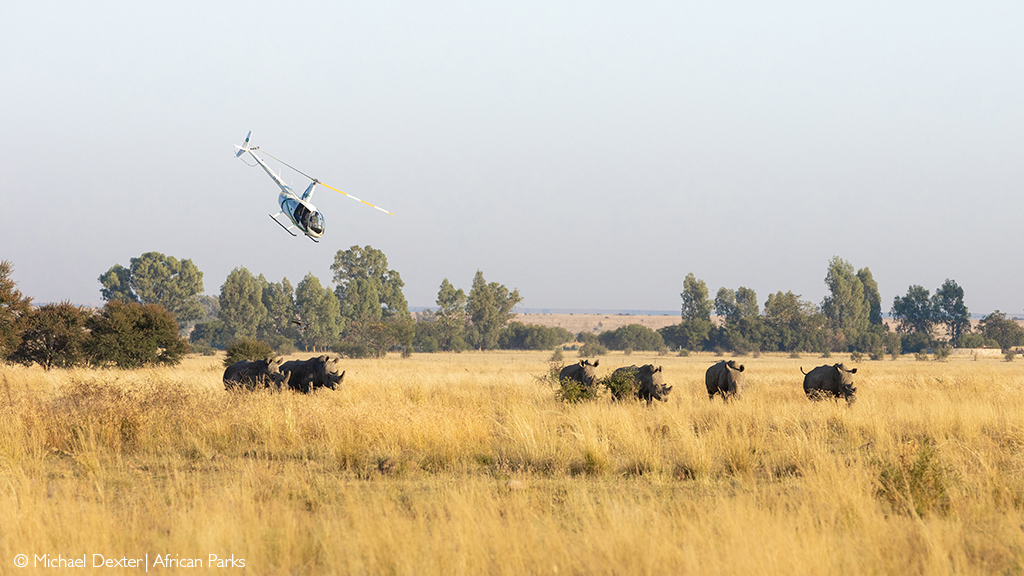

“Moving 120 rhinos under the Rhino Rewild initiative to GKEPF will augment the existing rhino population in the Greater Kruger and ensure that these rhino are fulfilling their role in their natural environment, which has been our vision from the start,” says Peter Fearnhead, CEO of African Parks. “Despite significant pressures, GKEPF members have played a critical role in the conservation of the Greater Kruger landscape, providing an important buffer to the Kruger, and we support their commendable progress in protecting rhino populations in their native range.”
Sharon Haussmann, CEO of GKEPF, says, “The rewilding itself bears testament to the cumulative knowledge, partnerships, and insights of a protracted period of anti-poaching efforts in the Greater Kruger landscape. That the benefits so clearly outweigh the risks presents a significant opportunity for rewarding the efforts of everyone who has remained committed to safeguarding rhino populations amid extremely challenging circumstances over the past 10 to 15 years.”
Collaboration is at the heart of GKEPF’s mandate. While rhinos will not be released into the KNP itself but into private game reserves along its western boundary, the project received consensus, collaboration, and expert inputs from KNP and South African National Parks (SANParks). This strategic placement to private reserves sharing an unfenced border with the KNP strengthens the rhino metapopulation and lays the groundwork for potential future collaboration as the Kruger continues its fight against poaching.
This region of South Africa is an ideal habitat for southern white rhinos. The fertile and water-rich grasslands of the selected release areas are suitable for ensuring optimal rhino health and population growth. Through a decade-long collaborative effort to combat rhino poaching, reserves and stakeholders have developed and shared a wealth of expertise. This has significantly bolstered their ability to proactively and effectively address poaching threats and safeguard the species.
The safety of these translocated rhinos is at the forefront for everyone involved. “The rhino will come in dehorned, which is a very effective way to decrease the poaching risk in this landscape. We’re at a point where this risk is well calculated,” says Markus Hofmeyr, a wildlife vet and Director of the Rhino Recovery Fund. “This will be the first reintroduction of rhinos into this landscape in about 50 years,” he adds.
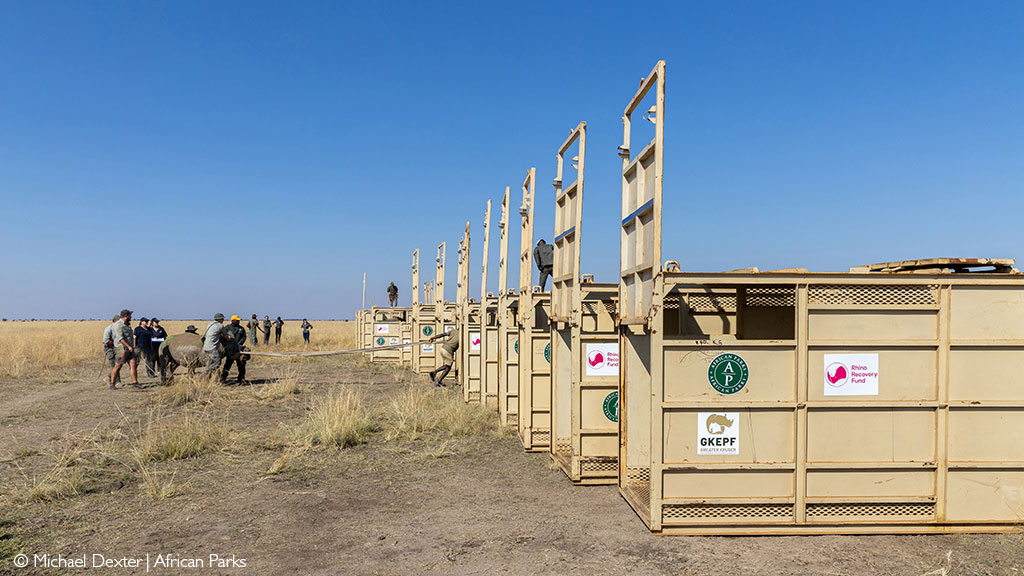

Moving 120 rhinos is an enormous undertaking in every way, and it has taken, as Haussmann explains, “many, many sleepless nights” and extensive funding. African Parks is donating the animals to the reserve, with GKEPF donors contributing to the translocation costs and the subsequent ongoing monitoring of the rhino, a critical element for the project’s long-term success.
A word of thanks from African Parks: The Rob Walton Foundation and the Pershing Square Foundation are the initial funders of Rhino Rewild. Thanks to the OAK Foundation, Rhino Recovery Fund, Hancock Family, Max Planck Institute & Contemplate Wild, and Land Rover Sandton/SMH Group for their support of this translocation to GKEPF.
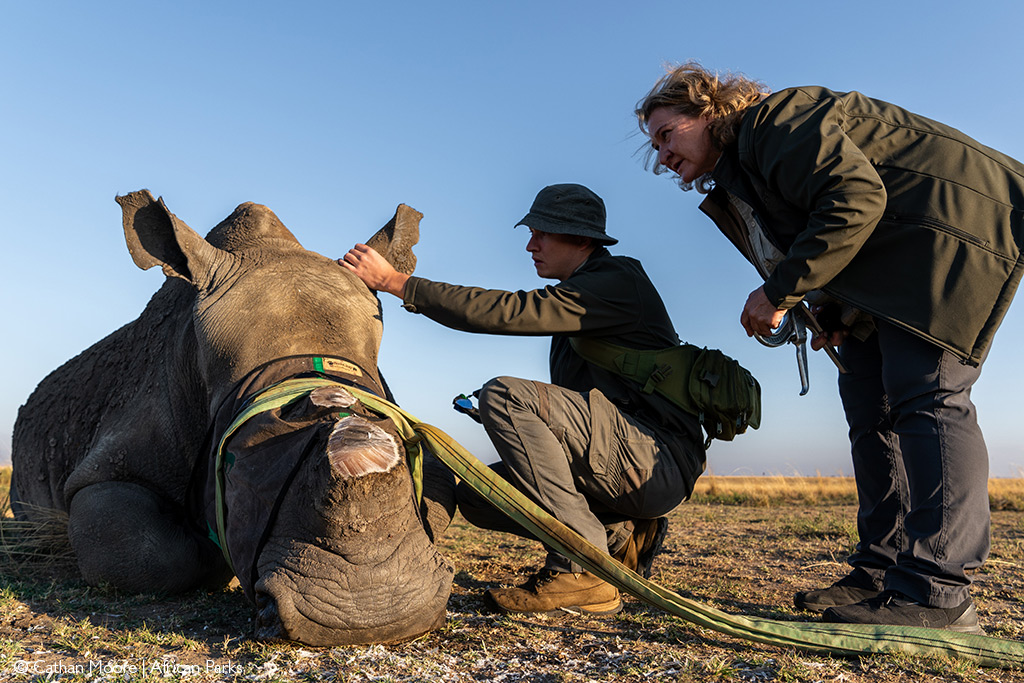
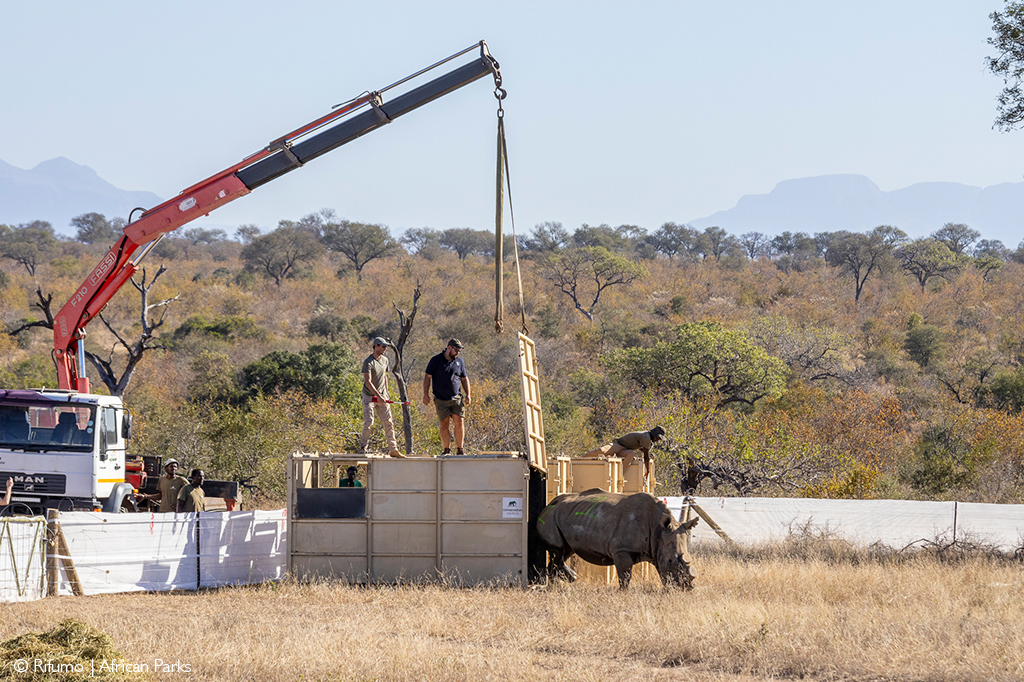
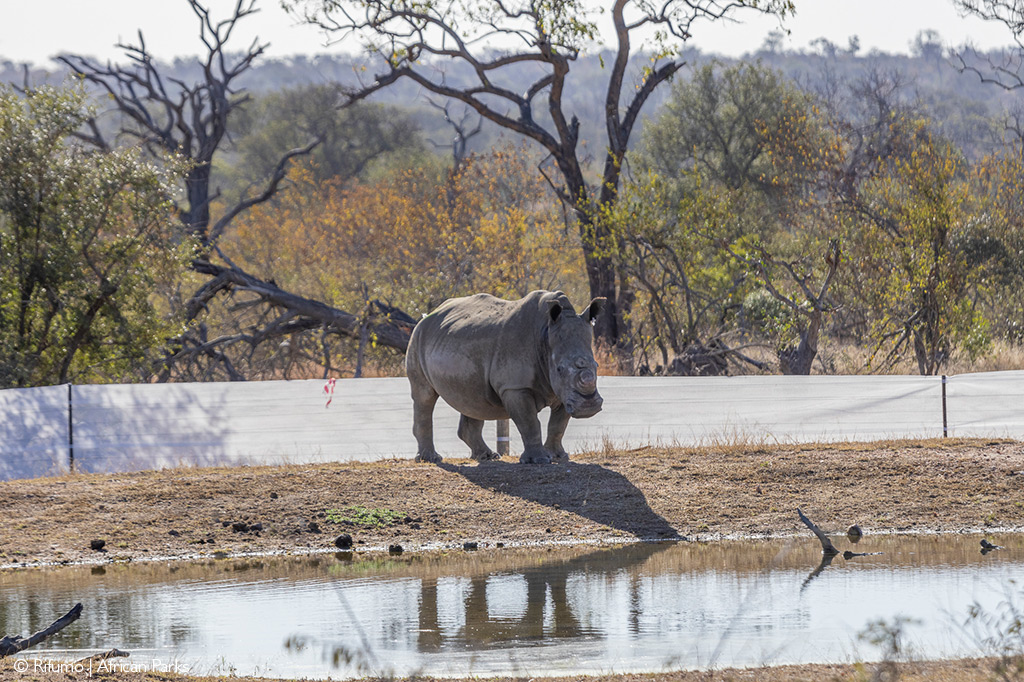
To comment on this story: Login (or sign up) to our app here - it's a troll-free safe place 🙂.![]()






